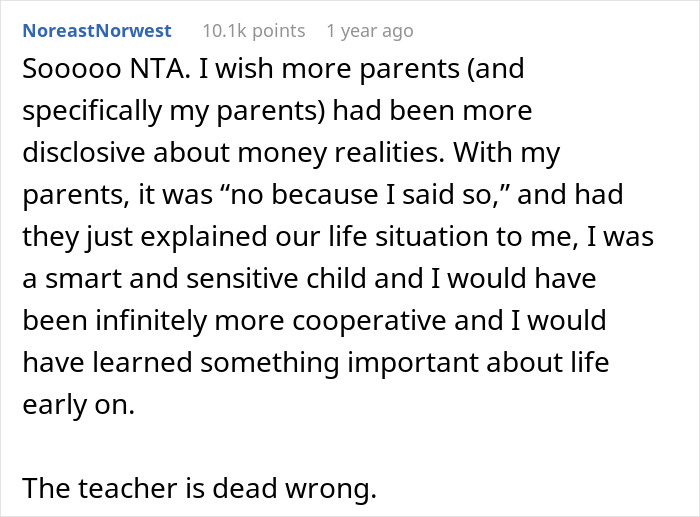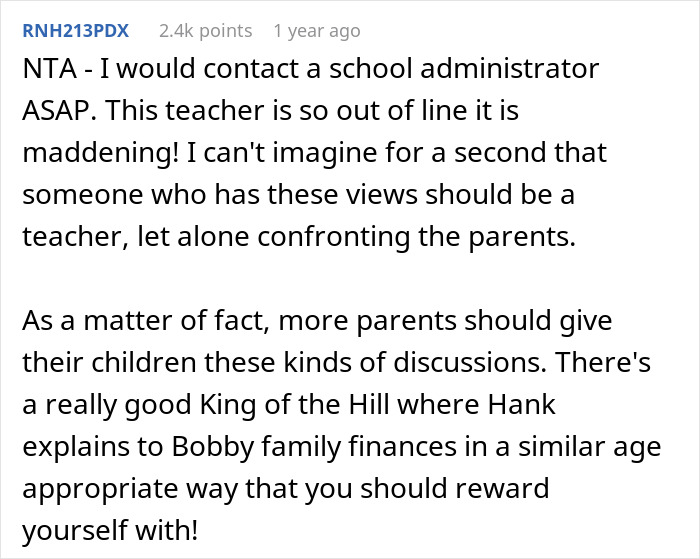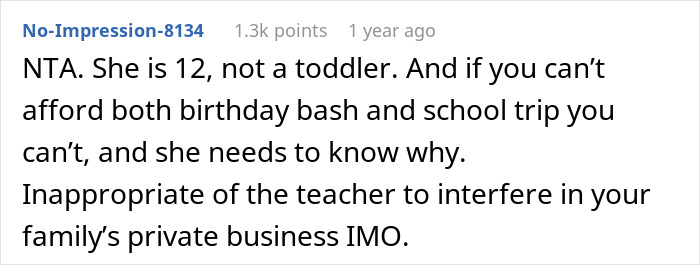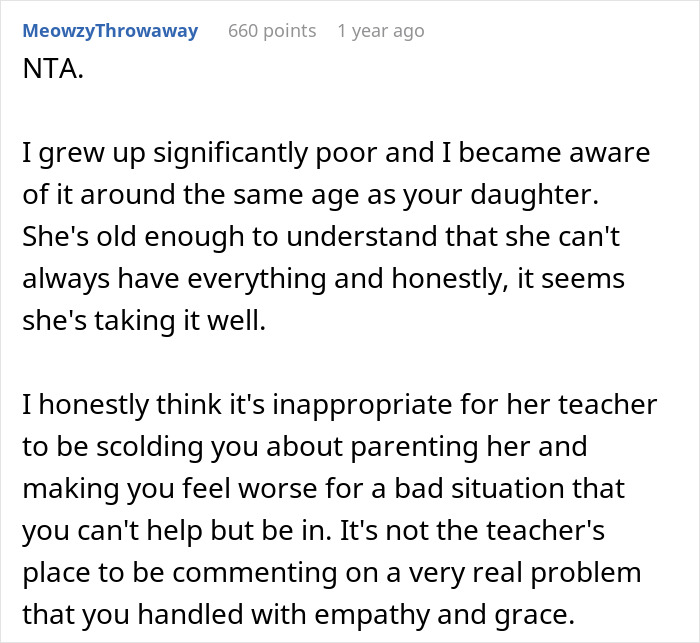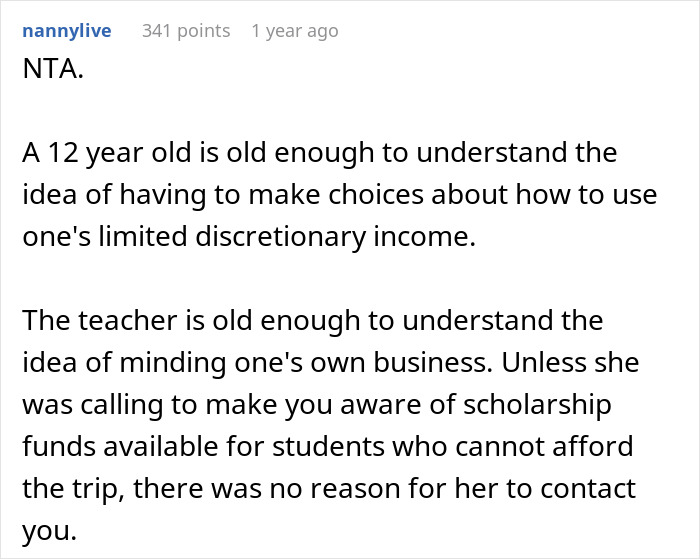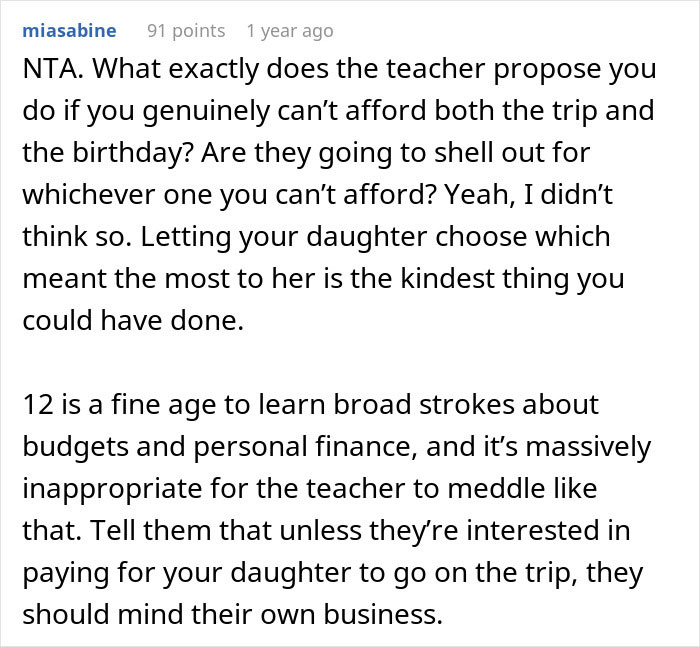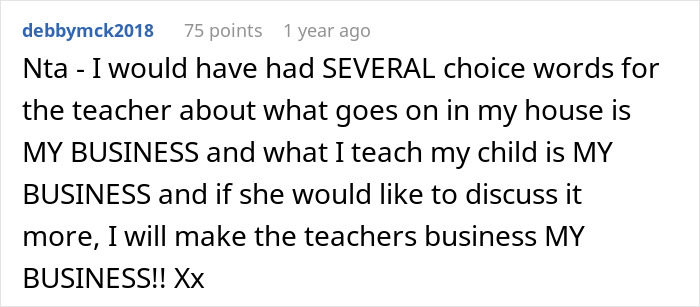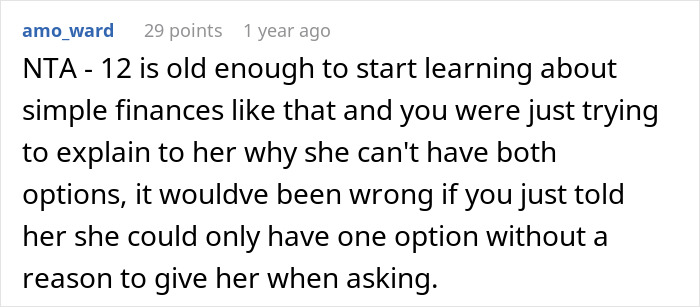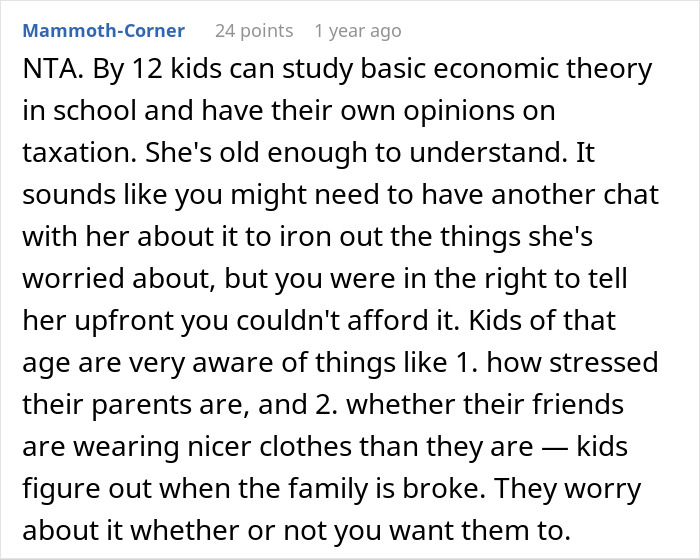Whether it’s setting up a lemonade stand, selling Girl Scout cookies, or simply watching how your parents deal with household expenses, our upbringing plays a big part in shaping our relationship with money.
There are many ways parents can explain finances to their children, but when Reddit user Disappointedkiddo198 set out to educate her 12-year-old on the matter, the girl’s teacher thought the woman was putting too much pressure on the kid.
In a post on the subreddit ‘Am I the [Jerk]?‘, the mom said that the lady even contacted her and gave her a scolding for it.
This woman tried to involve her daughter in the family’s budget decision-making

Image credits: Mary Taylor / Pexels (not the actual photo)
But the kid’s teacher had a problem with it
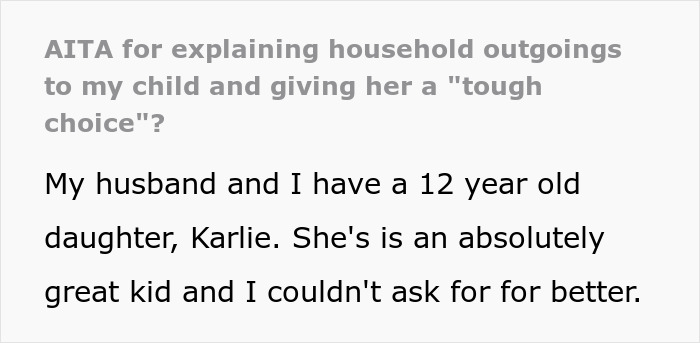

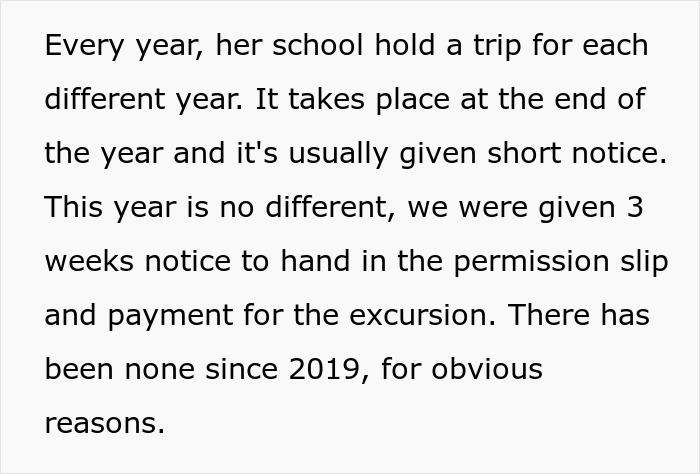

Image credits: Selvin Esteban / Pexels (not the actual photo)
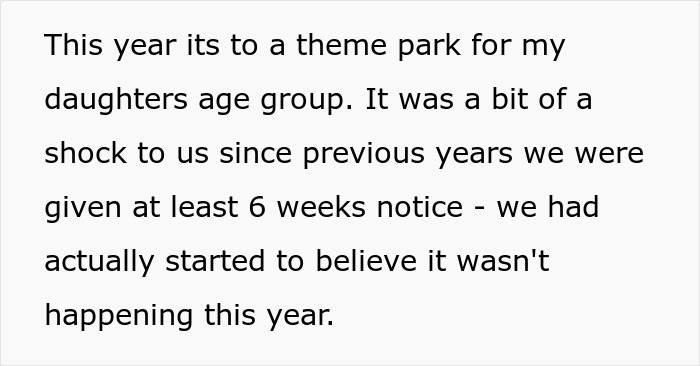
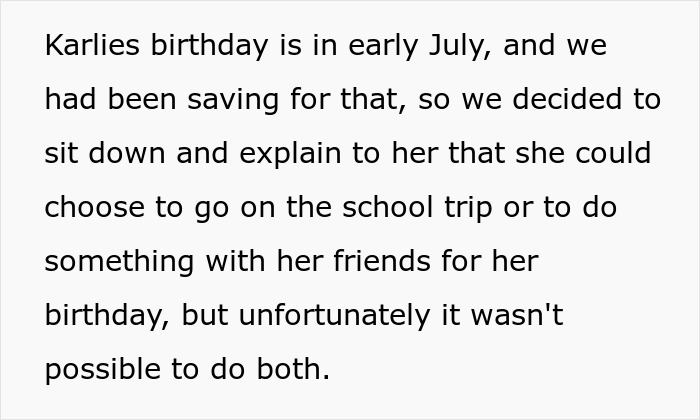

Image credits: Joshua Hoehne / Unsplash (not the actual photo)
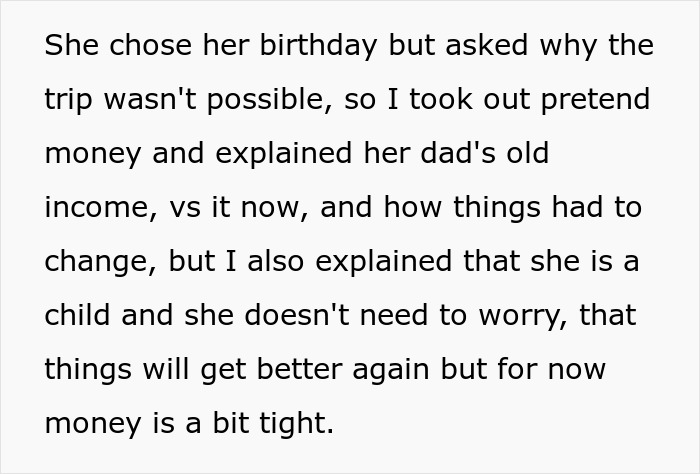


Image credits: Alexander Grey / Unsplash (not the actual photo)
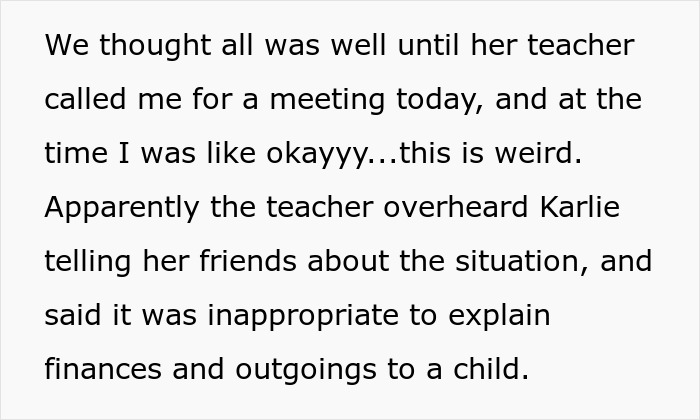
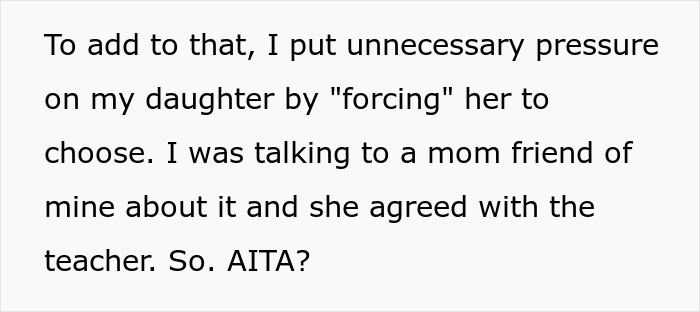
Image credits: disappointedkiddo198
Experts believe that teaching your children about money is the right thing to do
Mitchell Kraus, founder of Capital Intelligence Associates in Santa Monica, California, said, “The best way parents can teach their children good financial habits is by discussing the money decisions that they make.”
Kraus acknowledges that everyone might have a different approach, but they should at least discuss their thinking on spending and saving with their kids.
“Most Americans have a choice on how to spend their money,” he said. “Some choose nicer cars and houses. Some choose experiences. Going over the choices with your children helps them understand your values and that life is full of choices.”
However, this shouldn’t come as a one-and-done conversation. “Where most parents stop short is following up with the children on how well those choices turned out and what choices they might want to make in the future.”
Judging from the Reddit post, it sounds like the mother was just taking a proactive approach to instilling financial awareness in her child.
In fact, according to experts, between the ages of 9 and 12 is a good time to get kids thinking about the value of money, and comparison shopping is actually one of the most effective ways to go about it.
Only this time, instead of reading the store’s price labels and comparing the bulk amount per cent, it was about amusement rides and candles.
People unanimously said that the author of the post did nothing wrong and that the teacher was out of her depth
